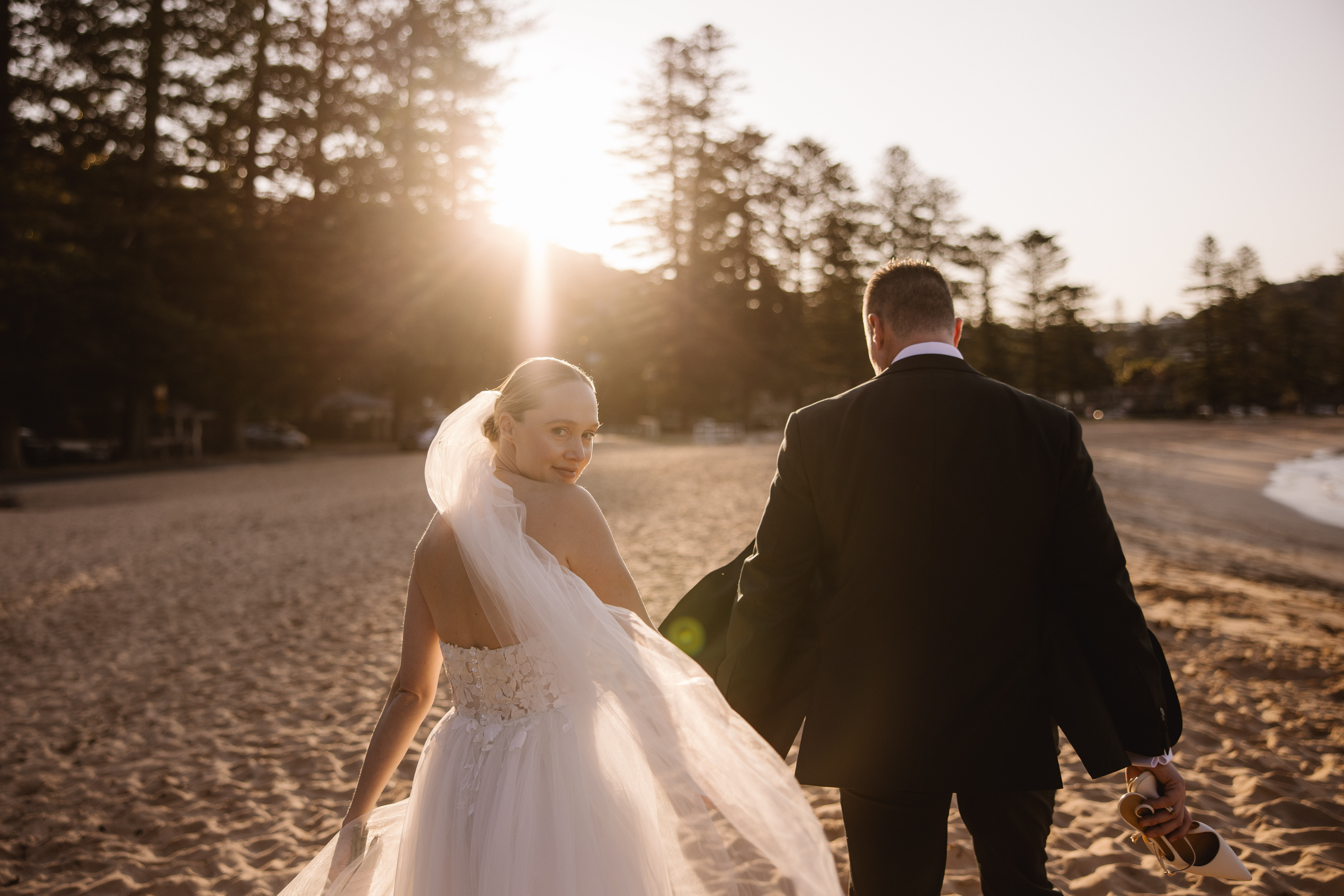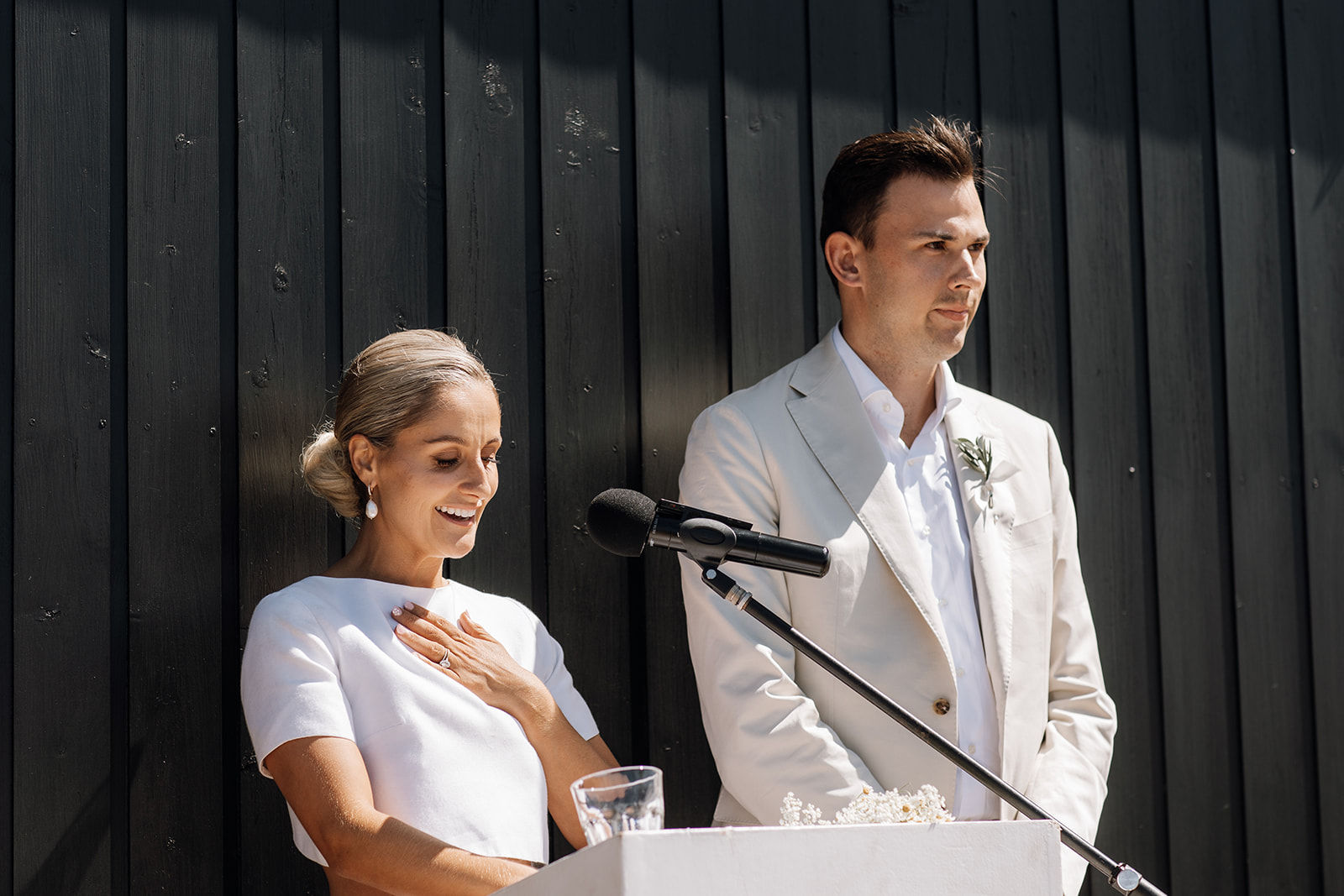When we first began planning our wedding, my husband and I plucked a number out of thin air and decided that’s what we wanted to spend. We had no idea what different things cost. Don’t do what we did.
The truth of the matter is wedding budgeting is not always as simple as settling on a random figure that “sounds about right” (pretty sure we said that). Of course you can set a budget and work to it – but it needs to be reasonable from the start. If you’re planning on doing a sit-down dinner for 120 people for $5,000 for example, we’d gently suggest you might need to pull out the calculator. Because when you think about it logically, you’d be stretched to do a pizza delivery with wine at that price.
Budgeting is one of the trickiest elements of wedding planning. We typically want to spend as little as possible but we don’t want to compromise on quality or miss out on having the elements of a wedding that matter most to us. So it helps to begin by figuring out what these are, and that way you can prioritise where your money is spent.
To help you here, we recommend a nifty little exercise to determine what’s most important to you on your wedding day, and thus, where at least a significant portion of your wedding budget should be directed. It’s by no means groundbreaking, but it might just set you on the right path.
The Wine and Non-Negotiables Exercise
Start by pouring two wines. Get a couple of pens and some paper. Write down the top five things you each want for this wedding (e.g. a live band, a cocktail bar, a long weekend away, a videographer, amazing food etc). Share these with each other and decide what’s completely non-negotiable.
These are the areas where you should invest money. Start here and then see how much these shared priorities will cost by reaching out to your three favourite businesses in each category. You’ll get a feel for the prices of different services and also the direction your budget is headed.
Could you do this exercise without wine? Of course. But why would you?
Extra tip: stick these pieces of paper on the fridge and refer to them when Instagram or Pinterest serves you the most impossibly OTT weddings. FOMO is a very real part of wedding planning but just try to remember what’s most important to you both so that you don’t feel yourself getting swept up in someone else’s vision.
We’ve created a more fleshed-out, more beautiful version of the above that you can download for free right here.
___
To begin with budgeting, you might find yourself feeling like you’re going around in circles: your venue might shape your date, but your budget might shape your venue, but your vendors might shape your budget. Don’t despair – things will start to become easier once you’ve done some research and have a handle on what things cost.
Here are some additional tips on starting your wedding budget (and budgeting in general)
- Having a rough guest count in mind will help you figure out what you’ll be spending (there tend to be per-head costs like catering and alcohol). As a general rule, the more people you invite, the more expensive your wedding will be.
- Great vendors (e.g. photographers, hair and makeup artists, wedding planners, etc) will make your life easier, your wedding day infinitely better and will probably save you money in the long run as they have relationships with other suppliers and have the resources to do things efficiently. Also, in the case that a vendor can tick multiple boxes (e.g. furniture hire and florals) you may save on things like transport as you’ll only need to pay for travel for one business.
- We are ALL for DIY but our advice is to avoid taking on too many projects or you’ll end up feeling overwhelmed, short on time and probably bitter about the whole process as a result. Be honest with yourselves: are you or your partner really cut out to learn calligraphy and hand write 100 menus? Do you really want to spend your free weekends in the lead-up scouring thrift stores for furniture? Take the advice of a tidy Japanese woman and only do the things that ‘spark joy’. Also, if you have a friend network of creative people, consider asking for help and delegating simple things if you feel comfortable.
- Keep in mind that larger wedding parties (bridesmaids and groomsmen) generally incur more costs – more bouquets/hair and makeup/dresses/suits/tans/gifts, etc. Of course, you’re not obligated to pay for all of the aforementioned by any means, but you might decide to cover or contribute to some things.
- Once you have an idea of how much you are willing to spend, calculate the number of weeks between now and the date of your wedding, and divide the total amount you’ve budgeted for by the number of weeks between now and your date. That’ll give you a clear idea of how much you’ll need to be putting away per week in order to pay off the wedding before the big day. If it’s an overwhelming amount or just not doable, readjust your budget and consider what’s really import to you both, or push out your wedding date, if you can, so you have more time to put aside the cash.
++++
Interested in more budget advice?
10 ways to stay within your wedding budget
Looking for more ideas?
We’ve brought together advice, articles, and inspiration on our Advice & Ideas blog to help you find your feet.






